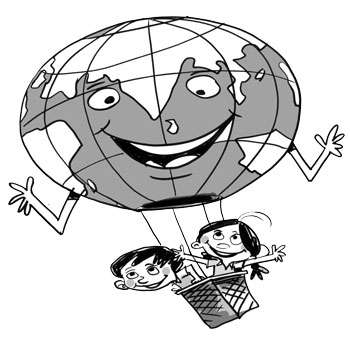Reply To:
Name - Reply Comment
Sri Lanka celebrates World Children’s Day this weekend and on Monday October 1, though other countries have their celebrations on different days ranging from June 1 to November 20 when the day is celebrated by the United Nations and its affiliate the United Nations International, Childrens Emergency Fund (UNICEF).
According to UNICEF, this year the world is going blue and we need to build a world where every child is in school, safe from harm and can fulfil the child’s full potential. World Children’s Day is a day for children, by children. It was on November 20 in 1959 that the UN General Assembly adopted the Declaration of the Rights of the Child. It is also the date in 1989 when the General Assembly adopted the Convention on the Rights of the Child.

Mothers and fathers, teachers, nurses and doctors, government leaders and civil society activists, religious and community elders, corporate bosses and media professionals as well as young people and children themselves could play an important part in making Universal Children’s Day relevant for their societies, communities and nations, the UN says. The day offers the people an inspirational entry-point to advocate, promote and celebrate children’s rights, translating into dialogues and actions that will build a better world for Children.
Last year UNICEF invited children from around the world to take over key roles in media, politics, business, sport and entertainment to voice their support for millions of their peers who are unschooled, unprotected and uprooted. From Auckland to Amman and from New York to N’Djamena, UNICEF called on children to campaign in their schools and communities to help save children’s lives, fight for their rights and fulfil their potential.
In 1954 the General Assembly had called on all countries to institute a Universal Children’s Day, to be observed as a day of worldwide fraternity and understanding among children. It recommended that the Day was to be observed also as a day of activity devoted to promoting the ideals and objectives of the Charter and the welfare of the children of the world. The Assembly suggested to governments that the Day be observed on the date and in the way which each considers appropriate.
The Children’s Convention, which is the most widely ratified international human rights treaty, sets out a number of children’s rights including the right to life, to health, to education, to play, right to family life, to be protected from violence, to not be discriminated against and to have their views heard.
On the basis of the Convention and joint effort by all the countries and regions, we need to promote and celebrate children’s rights on the Universal Children’s Day, and build up a friendly environment for children in the world through dialogue and actions.
In Sri Lanka, major events will be held from today to Monday to mark World Children’s Day. One of the main institutions involved in children’s rights is the wide powered National Child Protection Authority (NCPA). In a statement this year NCPA said it had initiated a programme to eliminate Corporal Punishment meted out to children in all settings. It said it hoped to sensitize principals and teachers on the contents of the circular relating to the right of the child to protection from corporal punishment.
Awareness Raising methods such as street-drama, interactive workshops and discussions are being used to create public opinion on this mode of cruel and degrading form of punishment.
NCPA has called on the people to inform it through its 24-hour child-line ‘1929’ if children were being subjected to this type of institutionalized and systematic violence. It said a UN Child Rights Committee also had highlighted the need to combat corporal punishment in the home, in alternative care setting, in penal institutions, and also in schools.
Children are innocent and devastatingly honest. They tell the truth. That is why religious leaders have told us that they are close to divinity and those who harm children should be thrown into the deepest ocean with millstones tied around their necks. As the late UN Secretary General Ban Ki Moon has said, education promotes equality and lifts people out of poverty. It teaches children how to become good citizens. Education is not just for a privileged few, it is for everyone. It is a fundamental human right.